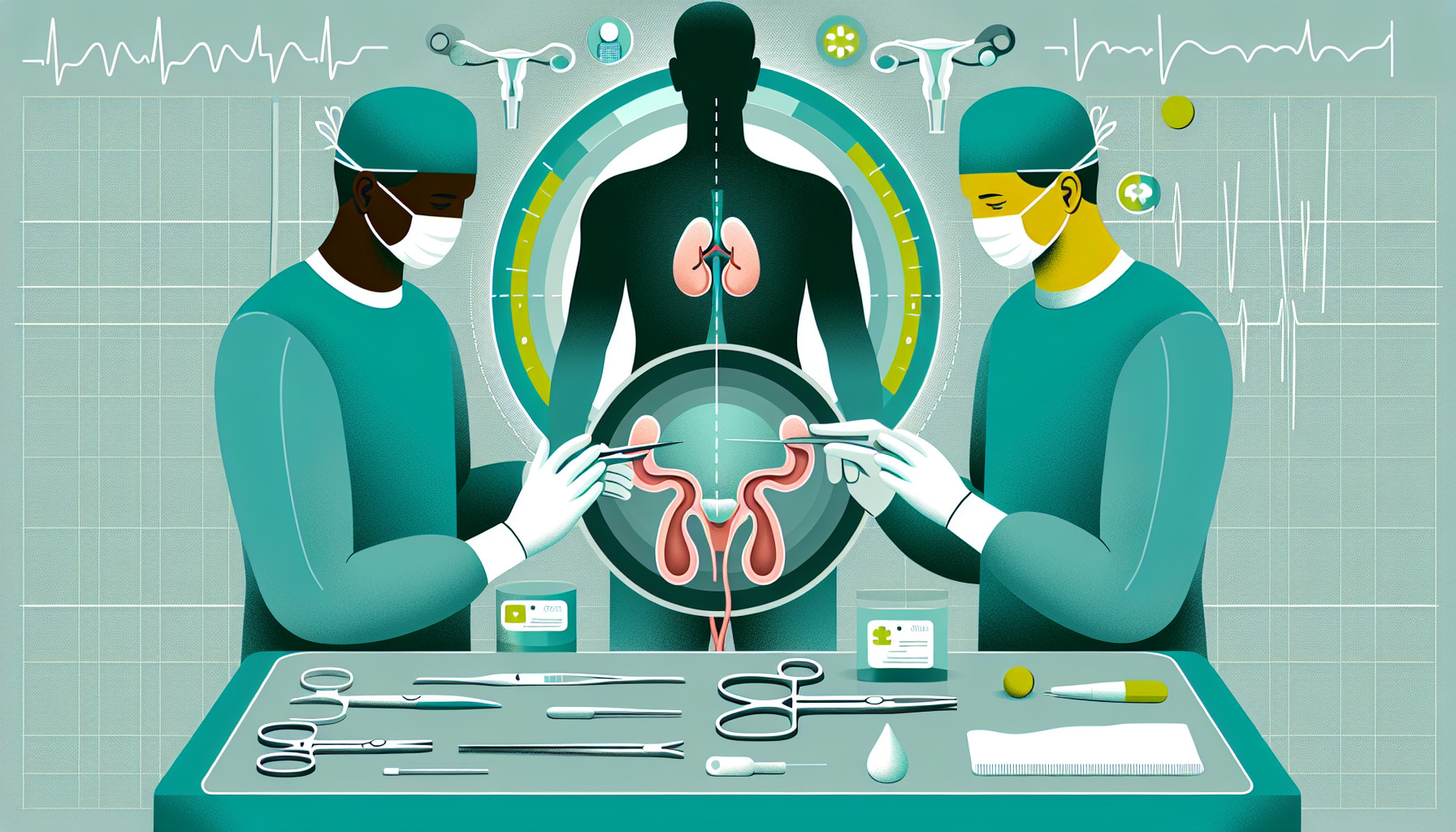Our Summary
This research paper is about a complex surgical procedure called radical cystectomy, which involves operating on the urinary and gastrointestinal systems. This procedure can come with serious health risks. Recently, a robot-assisted version of this procedure (RARC) has been introduced with the aim of improving the results during and after the surgery. Studies have found that this robotic procedure gives similar results to the traditional procedure in terms of cancer outcomes but has some advantages in terms of results during and after the operation. A fully internal approach, using an internal method for urine diversion, may offer further benefits. In this paper, we explain our method for the robotic procedure and internal urine diversion, and we review the results in terms of cancer outcomes and results during and after the operation.
FAQs
- What is the purpose of radical cystectomy and how is it performed?
- What benefits does robot-assisted radical cystectomy (RARC) provide compared to open radical cystectomy?
- What is the potential benefit of a complete intracorporeal approach using intracorporeal urinary diversion in radical cystectomy?
Doctor’s Tip
A doctor might tell a patient undergoing cystectomy to follow their post-operative care instructions carefully, including proper wound care, pain management, and any restrictions on physical activity. It is important to attend all follow-up appointments and communicate any concerns or changes in symptoms to your healthcare provider. Additionally, maintaining a healthy lifestyle, including a balanced diet and regular exercise, can help support healing and recovery after surgery.
Suitable For
Patients who are typically recommended for cystectomy include those with muscle-invasive bladder cancer, recurrent high-grade non-muscle invasive bladder cancer, or other bladder conditions that have not responded to other treatment options. Additionally, patients with certain types of neurogenic bladder dysfunction or refractory interstitial cystitis may also be candidates for cystectomy. The decision to recommend cystectomy is based on the specific characteristics of the patient’s condition and the potential benefits and risks of the surgery.
Timeline
Before cystectomy:
- Patient undergoes pre-operative evaluations, including imaging studies and laboratory tests
- Patient may meet with various members of the healthcare team, such as surgeons, nurses, and anesthesiologists, to discuss the surgery and post-operative care
- Patient may be instructed to follow a specific diet or take certain medications in preparation for surgery
After cystectomy:
- Patient is closely monitored in the recovery room for a period of time
- Patient may experience pain and discomfort, which can be managed with pain medication
- Patient may have drainage tubes and catheters in place to help with healing and urine drainage
- Patient will gradually start to resume normal activities and follow-up appointments with healthcare providers will be scheduled
- Patient may undergo additional treatments, such as chemotherapy or radiation therapy, depending on the specific reason for the cystectomy
What to Ask Your Doctor
- What are the risks and potential complications associated with cystectomy surgery?
- What is the expected recovery time after a cystectomy procedure?
- Are there any alternative treatment options to cystectomy that I should consider?
- How will a cystectomy affect my quality of life and daily activities?
- Will I need any additional treatments or follow-up care after a cystectomy?
- What is the success rate of robot-assisted radical cystectomy compared to traditional open surgery?
- What is the experience and success rate of the surgical team in performing cystectomy procedures?
- What type of urinary diversion will be performed during the cystectomy, and what are the potential long-term effects of this procedure?
- How will my bladder function be affected after a cystectomy, and what can I expect in terms of managing urinary incontinence?
- Are there any lifestyle changes or modifications I should make before and after a cystectomy to improve my overall health and recovery?
Reference
Authors: Hussein AA, Li Q, Guru KA. Journal: Curr Opin Urol. 2022 Jan 1;32(1):116-122. doi: 10.1097/MOU.0000000000000953. PMID: 34798640
